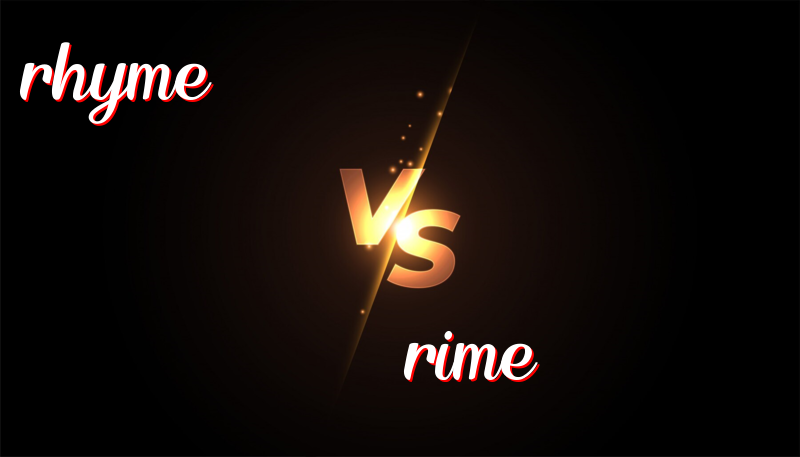Understanding the Distinction: Rhyme vs. Rime in English Language Usage
Rhyme versus Rime: Understanding the Difference
The English language has many words that sound the same but mean different things. “Rhyme” and “rime” are two such words. Let’s look at what each word means, how they are used, and how you can remember the difference.
History
Rhyme comes from the Old French word “rime” and refers to words that sound the same at the end. In poetry, rhyme is used to make verses sound nice and flow well.
Rime is an older way to spell “rhyme” but also refers to a coat of ice that forms naturally, like frost on leaves or windows. The word “rime” has been around for a long time and is not as commonly used for rhyming now.
How to Use Them
Rhyme:
- My favorite poems often rhyme.
- Can you think of a word that rhymes with “cat”?
- Children learn rhymes in songs and stories.
- The song has a lot of rhyming words.
- The poem uses rhyme to make it fun to read.
Rime:
- The tree branches were covered in rime this morning.
- Rime formed on the window overnight.
- In cold weather, you may see rime on grass.
- The rime sparkled in the sunlight.
- It is pretty to see rime transforming the landscape.
Trick to Remember the Difference
To remember the difference, think of “rhyme” with poems and words that sound the same. “Rime,” on the other hand, is like frost. If you see white, icy frost, it might be “rime.”
Summary
Both “rhyme” and “rime” sound the same but have different meanings. “Rhyme” is about sound and poetry. It makes things fun to read by using words that match in sound. “Rime” is a light frost or ice that appears in nature, especially in cold weather. Remembering their meanings and how they are used will help you choose the right word when you need to.

Leave a Reply
You must be logged in to post a comment.